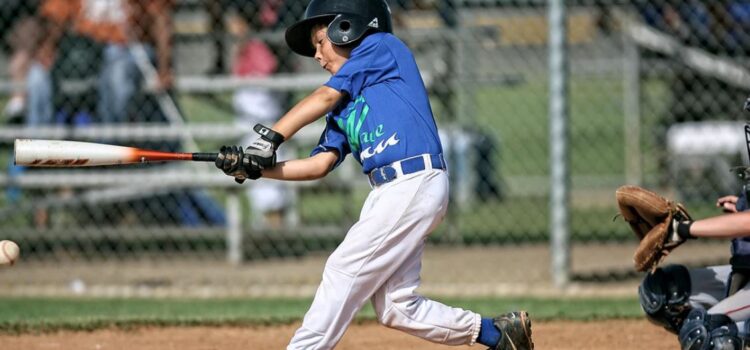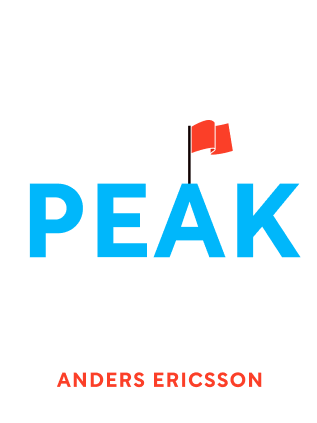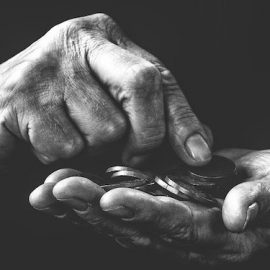

This article is an excerpt from the Shortform book guide to "Peak" by Anders Ericsson. Shortform has the world's best summaries and analyses of books you should be reading.
Like this article? Sign up for a free trial here .
How do the world’s top performers tap into their full potential? What are the benefits of starting young? What sets apart the experts from the rest of us?
Studies show that top achievers, whether it be in sports, music, or neurology, all have one thing in common: they started young. When children are introduced to their field of interest in a fun and playful way and are properly encouraged, they’re more likely to become an expert in their field later in life.
Keep reading to learn why starting young is the first step to becoming an expert.
The Process of Expertise
How do the world’s top performers do what they do? What is required to fully tap into the potential of the human mind and body? This is usually a process that includes starting young, continuing through adolescence and into early adulthood until true mastery is attained. But expert performers don’t just stop when they reach a certain level of skill. They keep going, constantly striving to improve their practice routines in the quest to get better and better.
Starting Young
In a study at the University of Chicago, one researcher looked at top achievers in music, swimming, tennis, mathematics, neurology, and sculpture. He found that they all started young and had common childhood experiences which exerted a meaningful impact on their subsequent records of achievement.
As children, they had all been introduced to their field of interest in a fun, playful way. Their parents provided them the time, attention, and encouragement to engage with it further. Indeed, the study found that the parents themselves were likely to be highly achievement-oriented. Crucially, the parents supplemented the child’s initial curiosity-driven motivation with praise.
The children at this stage didn’t engage in deliberate practice—yet. But they did creatively come up with activities that incorporated some elements of training. The hockey great Mario Lemieux, for example, regularly skated around with his two older brothers on a makeshift “rink” in the basement of the family home (using a bottle cap as a puck and kitchen spoons as hockey sticks). Like Lemieux, many future experts had older siblings to look up to and use as models for improving their own performance. Even the great Wolfgang Amadeus Mozart had his older sister, Maria Anna, who inspired him to pursue music.
For people who went on to dominate in fields like advanced mathematics or neurology (which, unlike chess, music, or hockey, are fairly inaccessible to young children), the parents introduced the children to the general idea of intellectual pursuit, rather than the particular subject matter itself. They also encouraged the children to build models or conduct science projects as part of their play.
Upping the Ante
With this foundation in early childhood, the study found that the future experts then took it to the next level, taking real lessons from a coach or teacher. These instructors knew how to properly motivate their young students and guide them along the path of deliberate practice. Praise from their teachers for reaching new levels of performance was a key ingredient in the early careers of these future experts who started young.
Parents still played an important role in this stage of development. They sometimes exerted harsh pressure on their children to maintain their practice schedule—threatening to cut off piano lessons or not take the child to their swim lessons unless they committed to deliberate practice at home.
Eventually, the encouragement of parents and teachers yielded to more intrinsic, self-directed motivation: the students began to enjoy the fruits of their labor and wanted to experience it more. They relished being seen as a swimmer or a tennis player or a musician. It became a major part of their identity and self-conception. They also began to seek out the company of people with similar interests and motivations, while also looking for the best teachers they could find.
As they got even older, the future experts truly committed to their field, being willing to pay high prices and endure difficult sacrifices to pursue their dreams. In seeking out the best coaches, many of them moved to other parts of the country. Elite tennis players, for example, make significant financial investments in their training—the IMG Academy in Florida charges in excess of $70,000 for tuition, room, and board.
Benefits of Starting Young
One of the main benefits of starting young is the fact that children and adolescents have fairly few time constraints that inhibit their ability to commit lots of hours to purposeful practice. Outside of school, their time is fairly unlimited, as opposed to adults, who must juggle the responsibilities of work and family.
This is the main barrier adults face, not physical or mental limitation. Nevertheless, there are some limitations that come with age, which can’t be surmounted, no matter how much deliberate practice one devotes to overcoming them. Physical performance, for example, tends to peak around age 20. After that point, flexibility decreases and muscles become more prone to injury. Moreover, some physical skills can’t be developed past a certain age, because skeletal structure is already set in place. Thus, if you start training to become an Olympic swimmer at age 50, you probably won’t succeed.
Similarly, researchers have found that the corpus callosum, a part of the brain that serves as a communication path between the right and left hemispheres, is significantly larger in adult musicians who started practicing before the age of seven—and smaller in both non-musicians and musicians who first picked up their instruments after this age.
Or we can look at gray matter, the tissue that connects neurons in the brain. The brain has the most gray matter during adolescence, after which it begins to diminish. Thus, a two-year-old child has about 50 times as many synapses (junctions between brain cells, which enhance learning) as an adult. But people who have learned a second language have been found to have retained more gray matter—and this is even more true for people who became bilingual early in life.
It is not the case, however, that adults are incapable of mastering new skills later in life.
Even as an adult, you can achieve expertise if you’re willing to put in the deliberate practice to do so. And deliberate practice is something that everyone can do.

———End of Preview———
Like what you just read? Read the rest of the world's best book summary and analysis of Anders Ericsson's "Peak" at Shortform .
Here's what you'll find in our full Peak summary :
- How to become an expert in any field you choose
- Why practice isn't enough because you need to change how you practice
- Why natural talent isn't enough and practice is more important






